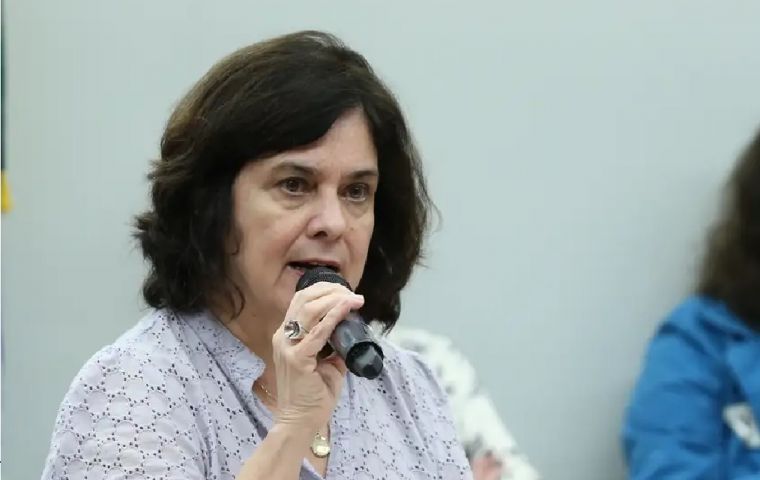MercoPress. South Atlantic News Agency
G20 Summit to push for regional vaccine producing coalition
 Brazil cannot lose confidence in its organ transplant system, Trinidade also pointed out
Brazil cannot lose confidence in its organ transplant system, Trinidade also pointed out Brazil's Health Minister Nísia Trinidade Tuesday spoke in favor of creating a regional vaccine production coalition to avoid an encore of the setbacks experienced during the Covid-19 pandemic. She made those remarks during a press conference after a G20 Health Ministers' meeting in Rio de Janeiro ahead of next month's Summit, Agencia Brasil reported.
Health ministers from the G20 countries are meeting this week in Rio de Janeiro. The assembly should see the nations reach a consensus on the production of vaccines and medicines. The group’s summit will be held on November 18 and 19, also in Rio, under the presidency of Brazil.
Trindade insisted that the greatest contribution the G20 could make to global health was to support the creation of a coalition for the local and regional production of vaccines and medicines in countries and regions that have difficulty accessing them. “This will be unprecedented. We have been working to reduce inequality between countries and to increase access. This is the main measure we hope will be approved. We cannot continue with the dependency seen during the Covid-19 pandemic when many countries took a long time to administer the first dose of vaccine,” she added.
The minister further said her country would also defend the expansion of digital healthcare strategies to mitigate the effects of climate change, and the creation of an instrument to deal with new pandemics. Brazil also plans to share the experience of its Saúde com Ciência platform, which aims to combat disinformation on health-related issues.
Regarding a recent scandal in Rio de Janeiro where six transplant recipients contracted HIV through the organs they were donated, Trindade explained that the federal government had been working to strengthen the National Transplant System after the nationwide stir caused by the laboratory's failure to detect the contamination.
“We had a joint action with the National Justice Council to tackle a bottleneck in the system, which is organ donation by families. So we are on a path to strengthen the system and it is essential that something this serious is properly investigated, rigorously investigated, and that society is informed because we cannot lose confidence under any circumstances in a system that is recognized worldwide,” Trinidade highlighted.
In the case of dengue fever, which tends to increase in the summer, the minister pointed out that the government was focused on prevention, raising awareness among the population to spend 10 minutes of their day looking for breeding sites of the Aedes aegypti mosquito, the vector of the dengue virus, and on the use of insect control technologies, with the release of mosquitoes infected with the Wolbachia bacterium.
In Brazil, 9 million doses of the dengue vaccine will be administered to children and adolescents aged 10 to 14 next year. “We are still working with the Butantan Institute, waiting for the possibility of a new vaccine to be approved to increase supply and have a broader vaccination plan,” Trinidade noted. Dengue has become a global challenge affecting most countries now due to climate change, the minister also argued.




Top Comments
Disclaimer & comment rulesCommenting for this story is now closed.
If you have a Facebook account, become a fan and comment on our Facebook Page!